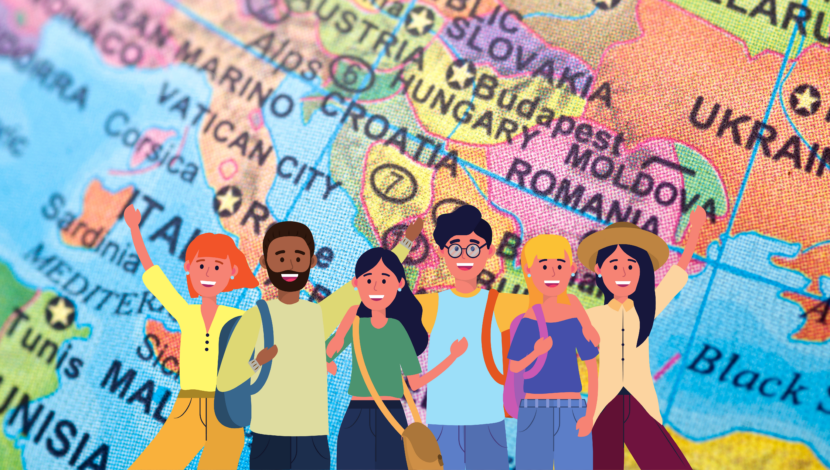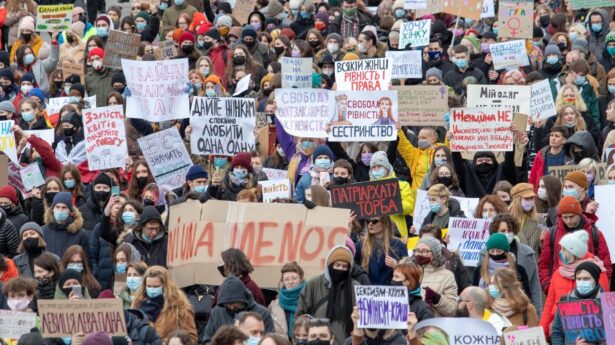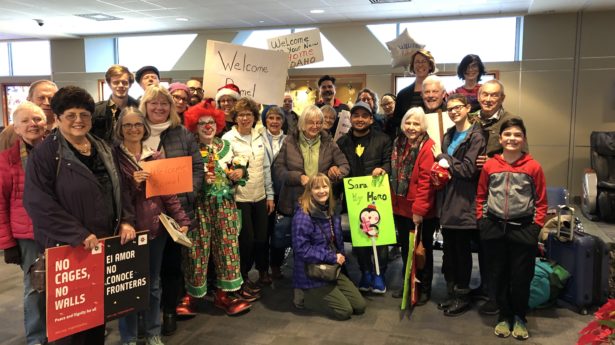The Unitarian Universalist Service Committee advances human rights through grassroots collaborations.
Beyond Borders: Community Care as the Deepest Act of Global Solidarity

By Rachel Gore Freed on October 26, 2022
The times we live in are filled with stories of acute crises – the COVID-19 pandemic and resulting economic aftershocks; the constant barrage of climate-induced catastrophes such as fires, floods, and storms; and the ongoing impacts of systemic poverty and racialized capitalism.
There is another story to tell about these same moments of crises. It is a story of how networks of locally led civil society organizations create nimble mutual aid systems and provide the most radical forms of care and the political solidarity woven into these acts of resistance. These networks are run by volunteers, often without access to funding or resources who forge new systems through mutual collective action and collaboration. During a so-called crisis, these networks are organized despite current power structures, failed public institutions, and inept government policies. Through mutual aid, these volunteers are reclaiming and building community power.
Political borders are often areas where I’ve seen vibrant community-building and the coordination of collective needs by volunteers in place of systems or structures that do not serve to uphold human dignity. I’ve seen this at the borders of Serbia and Hungary where mutual aid networks served to support families during migrant pushbacks and I’ve heard about the networks near Mae Sot at the Thai-Burma Border where groups are organizing support to get folks out of Burma to safety.
During my time on the ground in Warsaw, Poland, this past September, I learned about a group called Grupa Granica, an informal network of Polish NGOs, activists and volunteers that formed in response to the humanitarian crisis at the Polish-Belarusian border to provide humanitarian, medical, and legal aid to migrants fleeing through the forests there. Many of the volunteers live locally and came together to organize care and refuge for those arriving. I had the chance to witness a joy-filled reunification of two volunteers who were organizing together during this intense time in 2001 and who have since been supporting refugee receptions throughout Poland both prior to the Russian invasion and after.
I was invited to a UUSC-supported convening held by Voices in Poland, that brought together local feminist networks from across Moldova, Belarus, Ukraine, Romania and Poland. Activists from the region shared some of the same themes; many activists were on the verge of burnout and had a deep distrust of large international aid organizations and multilateral United Nations coordination mechanisms. They shared a sense of connection together during their time recharging and recentering their work. Together, the convening facilitators provided trauma-informed sessions and created space to identify shared frontline responses and to strategize about infrastructures and resources available to sustain their network’s organizing needs ahead.
Resourcing these feminist and migrant justice organizing networks to continue their work of supporting community care and community-building is a vital way we can engage in global solidarity work beyond borders. We can tend to our own communities, keep our focus on global systemic inequities, and weave together our narratives, speaking truth to the power that comes with re-creating the world through the lens of equity and self-determination.
Image Credit: UUSC

